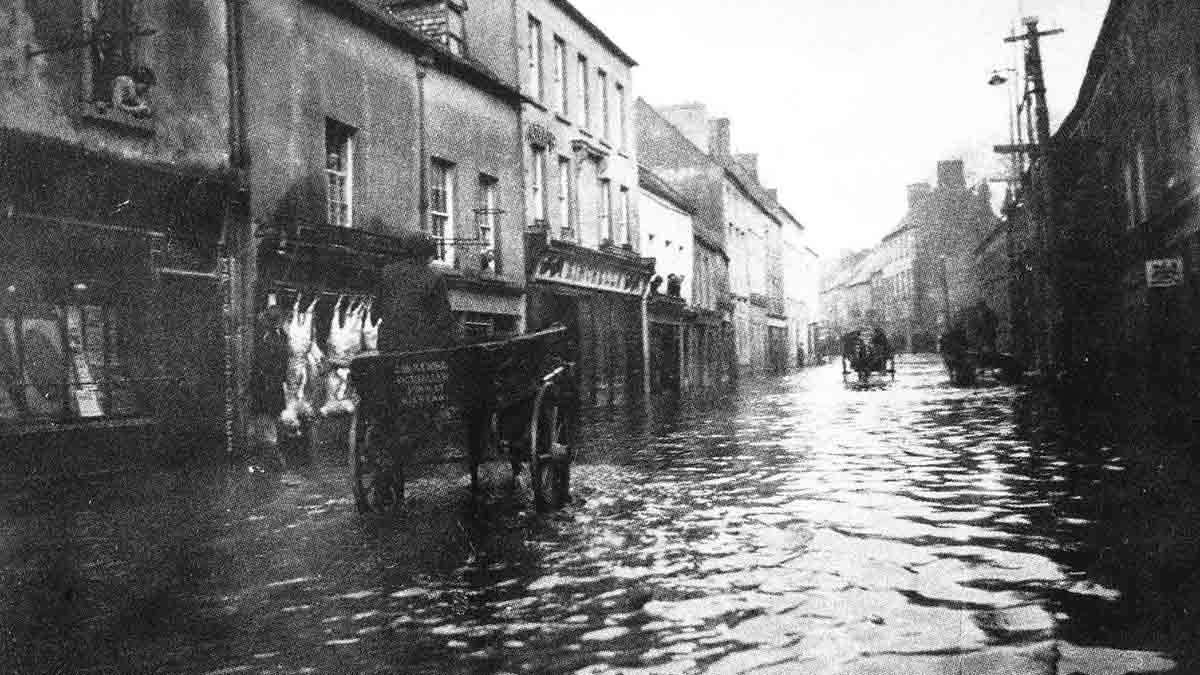By John Fitzgerald
PART THREE
Gus Carey remembered the terrible Sunday evening when his world was turned upside down by the flood. He was a child in 1947…scampering about the house, daydreaming about famous hurlers, when he became aware of the watery Blitzkrieg that the skies had launched on Kilkenny.
He wondered why his parents were so anxious, and why loud exclamations of panic were emitting from the streets and the people who lived on either side of his home. Looking out the second storey front window, he perceived the reason for all the commotion: His house had become an island, surrounded by water on all sides.
There were eight in the family, including Gus, and they would have to get out of their house or risk being drowned.
Thankfully, a number of people in the city had boats and these were pressed into service to rescue trapped householders, and, in non-emergency cases, to deliver food to them as in the flood emergency of 1926. William (Pierce) Clooney, a postman, was foremost among the boatmen who were greeted as Guardian Angels by stricken householders.
Gus Carey and his family were rescued and taken to Kilkenny Military Barracks where they joined other flood victims who had being rendered temporarily homeless. They resided in a block known as the married quarters. For almost a month, these families survived on food rations and were looked after until they could return to their homes.
There was no financial compensation for the vast majority of the City’s flood victims. Gus recalls that each affected household received two bags of coal from the local authority…to heat their houses after they had cleaned up what they could of the mess.
Though nobody was drowned in the ’47 flood, it did take its toll of farm livestock. Eye-witnesses around the county described Biblical scenes whereby entire flocks of sheep, herds of cattle, and thousands of chickens were swept along the River Nore to watery graves amid an unearthly chorus of shrieks and howls that called to mind the traditional concept of Hell.
Families who had never visited a farm in their lives enjoyed mutton, beef, and poultry cost-free when these products of hard-working farmers appeared Manna-like on their doorsteps.
A poor widow woman on the outskirts of the City who worried about being able to make ends meet for her family of six had her prayers answered when a prime bullock and a couple of well-fattened sheep were washed into her back garden.
Many a family dined on “flood meat” for weeks after the event, while the unfortunate farmers whose livestock had been so unfairly snatched from their fields and barns had to bear the loss of income.
Barrels washed out of Smithwick’s Brewery at St. Francis Abbey could be seen bobbing up and down on the river and along the submerged streets and pathways. The lucky citizens who managed to “capture” the barrels used many of them for firewood or storage purposes.
(To be continued…)




















